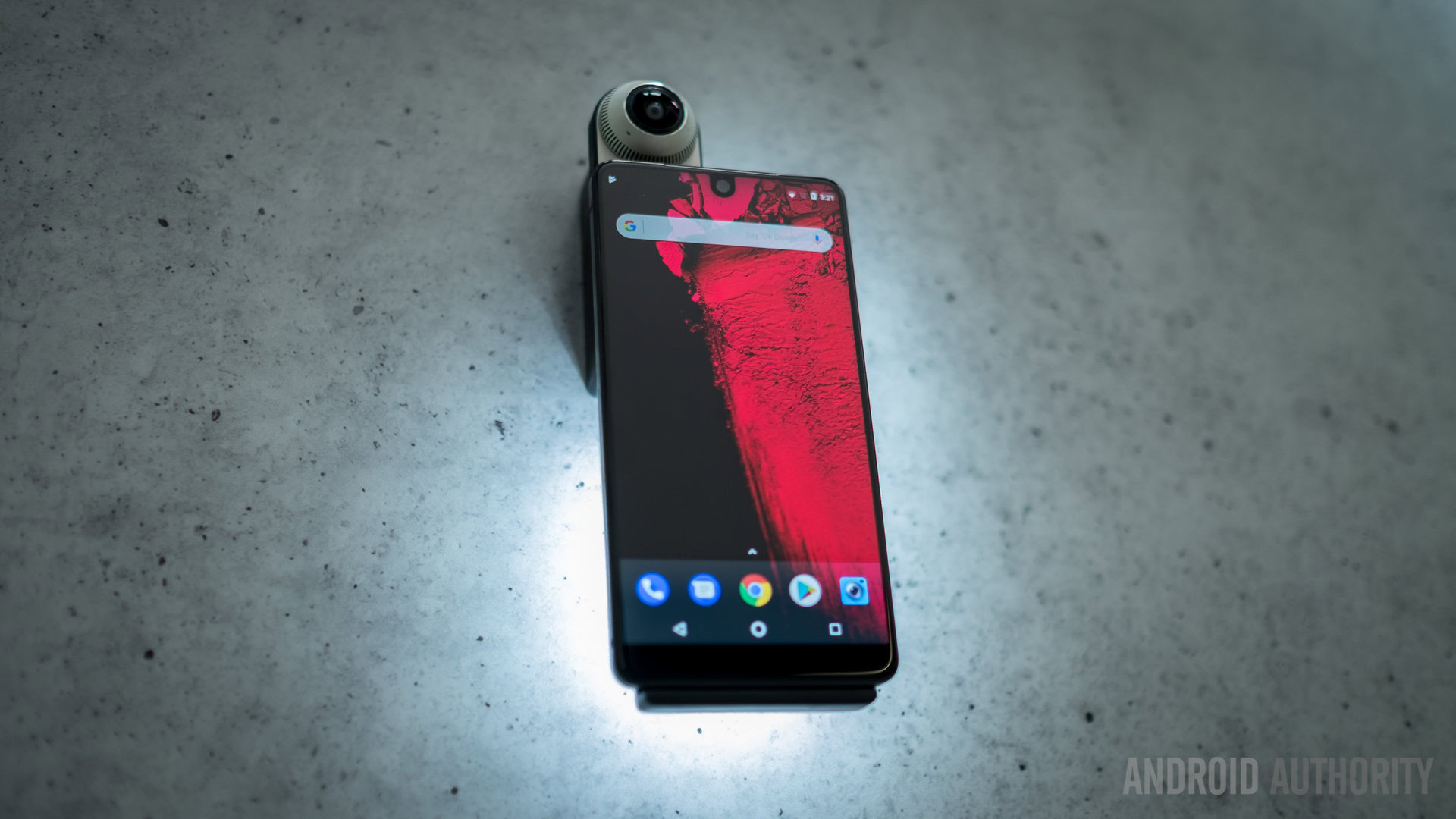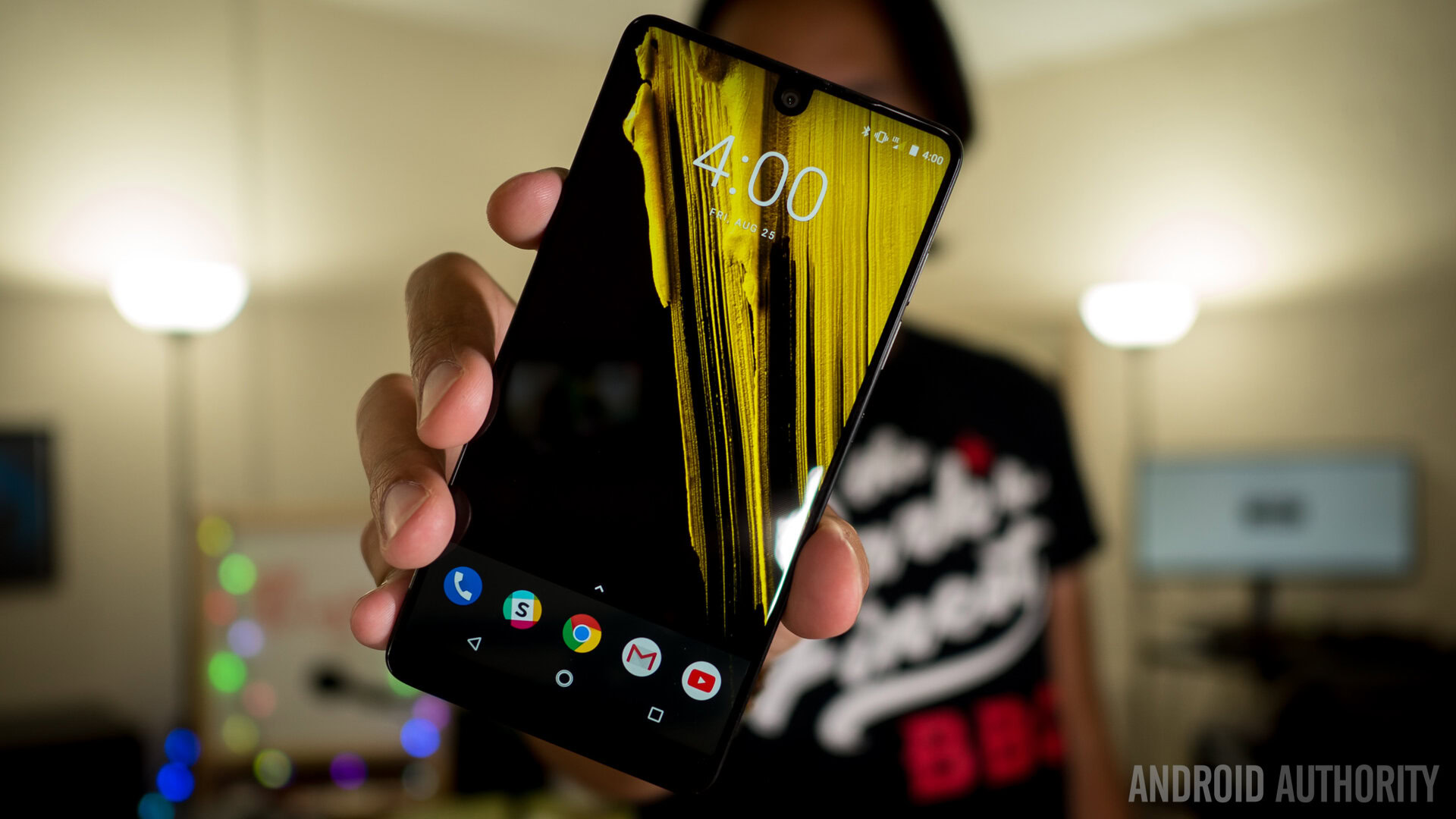Affiliate links on Android Authority may earn us a commission. Learn more.
Andy Rubin talks new Essential Phone accessories and smartphone addiction

When Android co-creator Andy Rubin’s Essential announced the near-bezelless Essential Phone, the company also revealed that the phone would support add-on accessories that attach to the phone’s back via magnetic points. We know about the 360-degree camera that you can see above, but Rubin announced that two more magnetic accessories are under development.
In an interview with Bloomberg, Rubin said the first accessory allows for high-quality audio to be wirelessly sent from the Essential Phone to your car stereo. The second gadget is what Rubin calls the “world’s smallest 3D laser scanner.” Rubin remained mum about what the laser is for, though he mentioned that lasers in self-driving cars are used to measure how far apart two objects are, so the laser could be used for such a function.

Rubin also remained quiet on when the accessories will be available, though Essential plans on shipping the first six accessories for the Essential Phone, with third-party manufacturers eventually putting out accessories of their own.
Arguably more significant, however, is Rubin’s thoughts on smartphone addiction and what Essential might accomplish to combat and minimize it. As Android’s co-creator, Rubin is privy to the dramatic increase in smartphone usage since the platform’s launch in 2008 and feels as if he can lead the way toward some sort of solution to the addiction that has resulted from that increased usage:
If I can get to the point where your phone is a virtual version of you, you can be off enjoying your life, having that dinner, having that dinner, without touching your phone, and you can trust your phone to do things on your behalf. I think I can solve that part of the addictive behavior.
According to Rubin, this could be accomplished by utilizing artificial intelligence to sort through notifications to either ignore or highlight them. For example, if a certain message is highlighted, you might be given several responses. Artificial intelligence can be utilized to become aware of your preferences and taste, so after you reinforce it with certain responses over a period of time, it might not ask you how you want to respond – it will just know:
The distraction is something that’s solvable if you have a virtual version of you doing stuff while you’re doing more important stuff.
It certainly sounds like a good use of AI, but there are already concerns over privacy and user data, concerns that will likely get louder once AI is thrown into the mix even further than it already is. Whether Essential can actually deliver the goods is a separate question, one that we might see possibly answered in the foreseeable future.